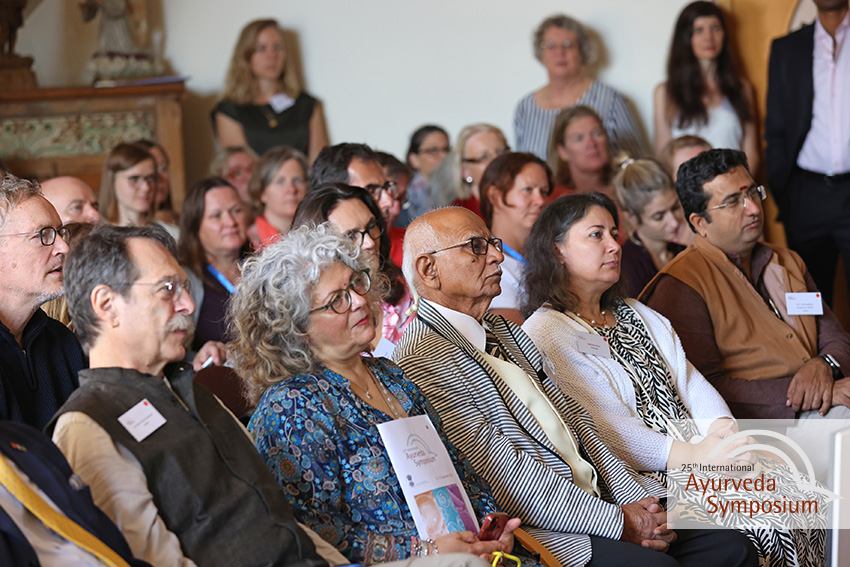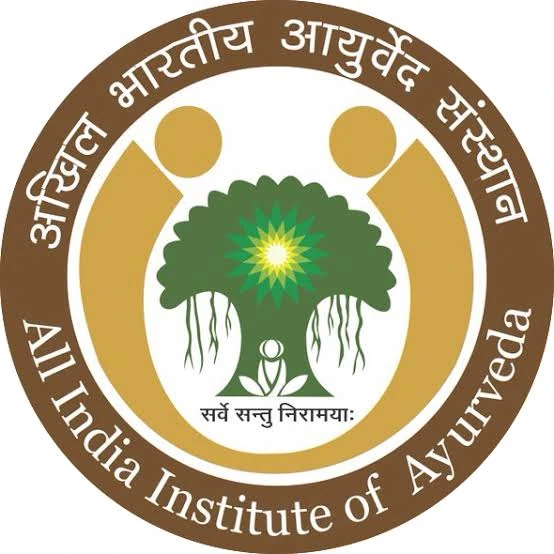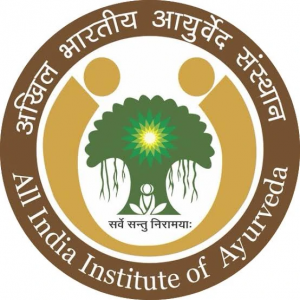Mit über 40 spannenden Vorträgen • Praxis-Workshops • Diskussionsrunden
Sei dabei, wenn sich die Ayurveda Community aus Indien und ganz Europa am Vierwaldstättersee trifft!
Fachkonferenz für die Ayurveda-Community

Unterstützt durch das Ministry of AYUSH, Government of India

In Zusammenarbeit mit dem AMVS – Ayurveda-Medizin-Verband Schweiz

In Partnerschaft mit der HPS – Heilpraktikerschule Luzern

Samstag, der 12. Oktober von 15:00 bis 21:30 Uhr:
Panoramasaal Hotel Seeburg, Luzern (direkt am Vierwaldstädtersee)
Sonntag, der 13. Oktober von 09:00 bis 17:00 Uhr:
Heilpraktikerschule Luzern, Ebikon (Vorträge/Workshops/Podien in drei Räumen parallel)
Zwei Locations – ein Symposium – erstmals in der Schweiz!
Live in Luzern – nur partiell gestreamt
 Zum 25. Mal veranstaltet die Europäische Akademie für Ayurveda auf ihrem idyllischen Campus das Internationale Ayurveda Symposium. Über 250 Mediziner, Berater und Therapeuten kommen zusammen, um ihr Fachwissen zu vertiefen – aus erster Hand und im direkten Dialog mit den großen Persönlichkeiten des Ayurveda.
Zum 25. Mal veranstaltet die Europäische Akademie für Ayurveda auf ihrem idyllischen Campus das Internationale Ayurveda Symposium. Über 250 Mediziner, Berater und Therapeuten kommen zusammen, um ihr Fachwissen zu vertiefen – aus erster Hand und im direkten Dialog mit den großen Persönlichkeiten des Ayurveda.
Sei live dabei, wenn traditionelle und moderne Heilkunde eine Verbindung eingehen – und wir das 30-jährige Jubiläum der Europäischen Akademie für Ayurveda feiern!
Warum du teilnehmen solltest:

Fünf Elemente, fünf Sinne – Luft, Feuer, Wasser, Erde und Äther zeigen sich an diesem Abend in ihrer kulinarischen Dimension.
Die verschiedenen Food-Stationen verteilen sich in idyllischer Atmosphäre im Garten des Campus. Erlebe Genuss mal erdend, mal temperamentvoll, und immer köstlich ayurvedisch!
Initiiert von Kerstin Rosenberg und ihrer Leidenschaft für die ayurvedische Kochkunst.


Mit dem Laden des Videos akzeptieren Sie die Datenschutzerklärung von YouTube.
Mehr erfahren

Ministry for AYUSH (Indien)

Heilpraktikerschule Luzern (Schweiz)

Ayurveda-Medizin Verband Schweiz (Schweiz)

All India Institute for Ayurveda, Dehli

MAM University and J.S. Ayurveda College, Nadiad (Indien)

Ayurvedic Point (Italien)

Rosenberg
Europäische Akademie für Ayurveda (CH/D/A)












Rosenberg Ayurveda und Wellness-Consulting AG
Europäische Akademie für Ayurveda Schweiz
Büelstrasse 17
CH-6052 Hergiswil NW
info@ayurveda-symposium.org
Newsletter
* Ich habe die Datenschutzerklärung zur Kenntnis genommen. Ich stimme zu, dass meine Angaben und Daten zur Beantwortung meiner Anfrage elektronisch erhoben und gespeichert werden.

2024 © Rosenberg Ayurveda Akademie gGmbH